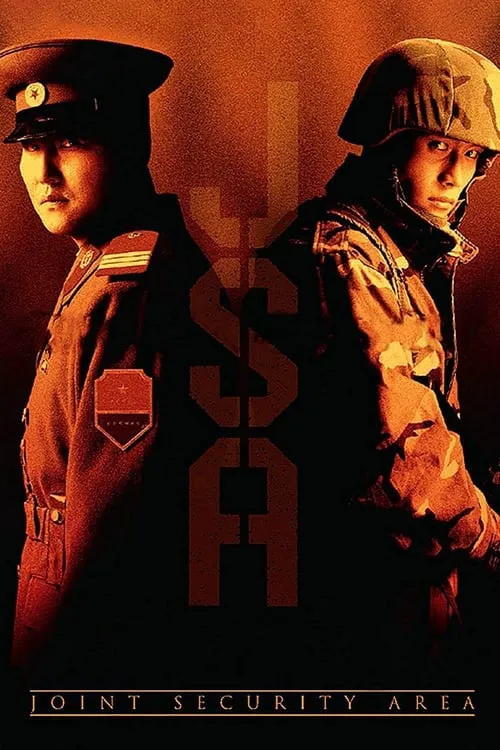Joint Security Area

Plot
In the tense political climate of 1968, the fragile balance of power between North and South Korea hangs in the balance. A pivotal event sets off a chain reaction that will challenge the fragile peace between the two nations: the shooting at the Joint Security Area, a neutral zone established to facilitate communication between the opposing factions. As tensions rise, two North Korean soldiers are tragically gunned down in the Joint Security Area, leaving behind two South Korean guards as the primary witnesses. The incident sets in motion a high-stakes investigation, overseen by a neutral body, as the two sides try to piece together the sequence of events that led to the tragic outcome. Enter Captain Soe Myung-oh, a seasoned and no-nonsense leader from the South Korean side, who serves as the lead investigator in the case. Soe Myung-oh is abetted by Lieutenant Lee Soo-keun, a young and ambitious officer with a reputation for being one of the most astute observers in the Army. The dynamics between the two men are palpable, with Soe Myung-oh relying on his seasoned instincts to guide Lee Soo-keun through the investigation. However, the investigation's delicate balance is disrupted by the arrival of Sergeant Jin Tae-ju, a rugged and taciturn North Korean officer. Jin Tae-ju is an enigmatic figure, and his demeanor only serves to exacerbate the tension within the investigation. As the investigation unfolds, it becomes clear that Jin Tae-ju is not one to mince words, and his unyielding commitment to the truth, North Korean style, puts him at odds with the more measured, diplomatic approach favored by the South Korean officials. One of the central figures who gets drawn into this complicated dance is Major Sophie Jean, a Swiss-Korean officer who serves as the director of the neutral investigation team. Major Jean's unique perspective – having been born and raised in both South Korea and Switzerland – lends a level of objectivity to the proceedings, albeit one that is sometimes put at risk by her close relationship with Lieutenant Lee Soo-keun. As the investigation into the shooting continues, it is clear that the truth is far more complicated than initially meets the eye. While Captain Soe Myung-oh strives to reconstruct the events surrounding the shooting, he is thwarted at every turn by Jin Tae-ju's evasive testimony. Conversely, Major Jean, Lee Soo-keun, and other officials within the investigation team are convinced that Jin Tae-ju's story holds the key to unraveling the mystery, although his unapologetic demeanor only serves to muddle the waters. It becomes increasingly clear that both North and South Korean governments have a stake in controlling the narrative of the events leading up to the shooting. For North Korea, any hint of blame would reflect poorly on the regime's strict military control, while its South Korean counterpart is equally desperate to avoid any suggestion of provocation or weakness. The investigation, now a pawn in this high-stakes game of diplomatic chess, is pushed further and further to the periphery as Major Jean, Captain Soe Myung-oh, and Jin Tae-ju grapple with their conflicting perspectives. One of the defining aspects of Joint Security Area is its ability to convey the complexity of international politics, where the simplest incidents can balloon into massive diplomatic crises. The movie shows this, even though, both sides in the Joint Security Area are well aware of the fact they're in a 'live' zone – a place of extreme volatility that can rapidly spiral out of control. In the tense, suspenseful world of Joint Security Area, each party's perception of the truth becomes a source of power, and the fragile relationships between nations are constantly tested and redefined. As tensions rise and the stakes grow higher, one thing remains clear: the fate of the Joint Security Area's inhabitants hangs in the balance, and it will take a miracle to avoid an all-out disaster.
Reviews
Recommendations




